In the context of what I’ve been learning about the Puerto Rican Cultural Center, there are two important but distinct ways that the organization considers their own “Right to the City,” as discussed in David Harvey’s essay from New Left Review (2008). As I mentioned briefly in an earlier post, there is the “local” side of this conversation, which is the more obvious. The PRCC very consciously and actively works at creating a Puerto Rican space in Chicago that combats community displacement and the intertwined social, cultural, and economic struggles that stem from it.
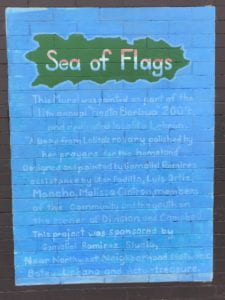
Sea of Flags, mural on Division Street painted in 2004.
Through their work in Chicago, building a network of like-minded groups has been foundational to the PRCC. Indeed, as an umbrella organization through which numerous other programs run, their values encompass the necessity of supportive services that are interwoven with one another. The PRCC also has fundamental partnerships with other local organizations and services to engage and sustain the Puerto Rican community here. I would argue that all of this work is indeed invested in the “greater democratic control over the production and utilization of the surplus,” as Harvey claims is a core demand of “urban social movements of opposition.”[1] Through their activism, the many like-minded groups that are connected within the PRCC advocate for the rights of Puerto Ricans in Humboldt Park in many different ways, on an individual level and also on a neighborhood and community level.
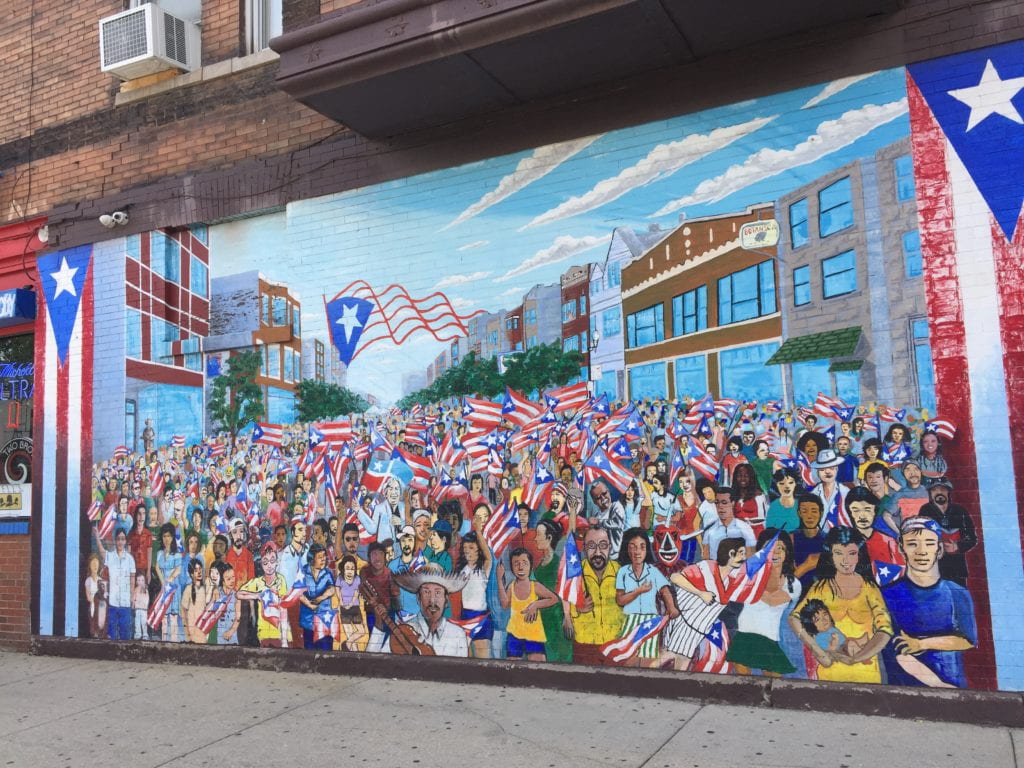
Secondarily, there is the global aspect of what the PRCC does, promoting and engaging in a long-time struggle for Puerto Rican Independence from US colonial rule. They are an integral part of the National Boricua Human Rights Network (NBHRN), “an organization composed of Puerto Ricans in the US and their supporters that educates and mobilizes the Puerto Rican community, the broader Latin American community and other people of conscience regarding issues of justice, peace and human rights.” The NBHRN’s decades of organizing work and historic materials, many of which we have been finding in our initial survey documentation for the PRCC’s archival collection, focuses on these fundamental goals:
“(1) The decontamination, development, and return of the island of Vieques to its people; (2) The release of the remaining Puerto Rican political prisoners; (3) An end to the continuing political repression and criminalization of progressive sectors of the Puerto Rican community.”[2]
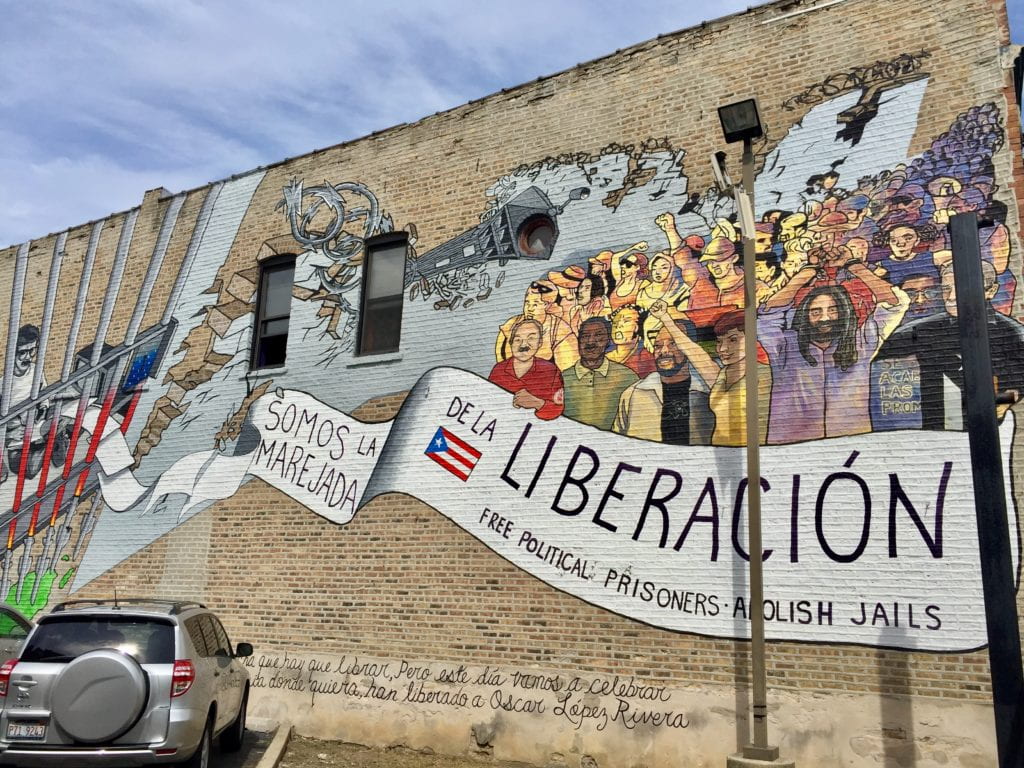
‘Oscar, somos la marejada de la liberación’ (‘Oscar, we are the groundswell of liberation’)
This work has largely centered around campaigns to free Oscar López Rivera and other Puerto Rican Independence activists from extensive prison terms, functioning through a network of groups based in different cities that host demonstrations, events, and organized advocacy campaigns.
There are other historic documents and records from a range of activist groups within the materials that we have been surveying. As we start to organize and process these materials, they will help tell the narratives of the PRCC’s history and its collaborations in working for international justice. While the scale of national independence is different from that of local community organizing, they are fundamentally linked for the PRCC, which has built many bridges within and between these networks of activism to sustain and promote their “right to the city.”
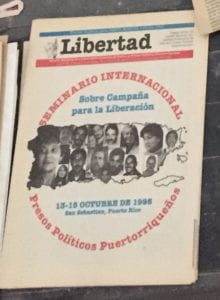
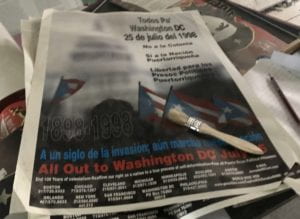
A few examples of publications and posters, illustrating the international efforts to support political prisoners.
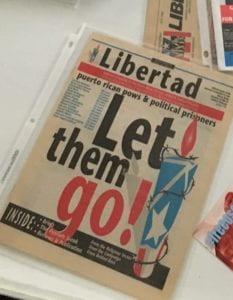
[1] David Harvey, “The Right to the City,” New Left Review (53), 2008, p. 23-40.
[2] http://boricuahumanrights.org/?page_id=2

You’re absolutely right that the global liberation movement that the PRCC supports is not just spiritually and politically, but intellectually connected to the more local work in Humboldt Park. Since Harvey’s work is so connected to cities (and the idea that urbanization is organizing our lives more than nearly any other spatial force), he is theorizing within an urban context. And, of course, he’s borrowing from Henri Lefebvre, who himself was inspired by the Paris uprisings in 1968. (Paris = cities.) But one could extrapolate — or enlarge — the idea as the PRCC does in practice by identifying colonial projects at both the urban and the global scales. In fact, the Black Panthers made similar points about Oakland and Black Liberation in the late 1960s! So, when we talk about building alliances to be able to democratically control the surplus in cities, the alliances need not be tied to one urban location. In fact, this is sort of what the Fearless Cities (http://fearlesscities.com/) meme is all about! And, what’s more, as PRCC demonstrates, perhaps they don’t even need to be tied to cities at all, but rather to like-minded communities of interest.